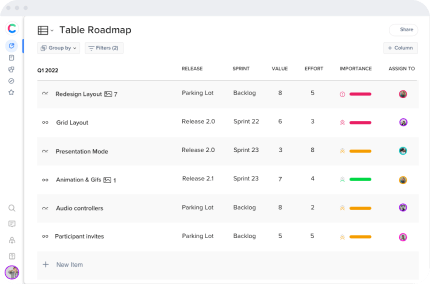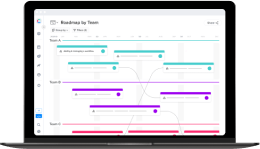What is a scrum master?
Scrum Master is a term referring to a critical role in agile-based business.
Working as a Scrum Master is a specialized vocation that derives from a specific job inside the Scrum framework. A Scrum Master is the one who is in charge of delegating and managing agile software development activities that are based on the ideas and methods of the Scrum framework.
Scrum is an Agile paradigm for working on large, complicated projects, most commonly software. The Agile project management style employs short development cycles, known as sprints, to ensure that a product or service is continuously improved. Several Agile frameworks are available, with Scrum being a common choice for fast-paced projects. The approach is highly collaborative and needs efficient processes, and the process’ results are dependent on the Scrum Master’s skill.
Furthermore, you may find Scrum Master employment in various sectors and firms worldwide. Agile approaches may have begun in IT companies, but one can find Scrum Master jobs in multiple industries and companies.
This position’s responsibilities include:
● Getting rid of impediments
● Creating an atmosphere in which the team can work effectively
● Taking care of team dynamics
● maintaining a positive working connection between the team and the product owner and with individuals outside the group.
● We are keeping the team safe from outside distractions and disturbances.
The Role Of a Scrum Master
What are the various roles in Scrum, and how do they differ?
Scrum is an agile process that may be used in software development and project management by a team of people.
In Scrum, the company must assign particular roles to which everyone must be dedicated.
A Scrum team has three members: the Scrum Master, the product owner, and the development team.
Participants in Scrum meetings and time schedules are actively engaged in the project; however, external individuals who may be affected or simply interested in the project are not required to be included in Scrum-specific activities such as Scrum meetings and time schedules.
It is customary for a Scrum team to collaborate on a single project; however, team members may be assigned to different Scrum teams responsible for a specific project goal or task in large organizations.
Even while the teams may be distributed or cross-functional, the Scrum roles are not. A product owner and a Scrum Master are never included in a development team’s work, and they should not be.
Even though, in practice, depending on the available resources and particular approaches, it is frequently the case that the Scrum Master job is more flexible than the others in terms of implementation.
Many organizations have employed an external Scrum Master responsible for multiple projects across several different organizations. Other organizations have avoided assigning the Scrum Master position altogether, instead of relying on the Product Manager, who is not a member of the Scrum team, to take on the Scrum Master’s responsibilities.
If the team determines that a dedicated Scrum Master is not required, members of the development team may rotate through the role of Scrum Master on a rotating basis.
Scrum Master vs. project manager
The primary difference between a Scrum Master and a project manager is the work they focus on. Project managers primarily deal with the project’s result, including the budget, timetable, resources, and team communication. Whereas a project manager is focused on the project, a Scrum Master is concerned with the team, ensuring the team’s and individual team members’ success.
How To Become a Scrum Master
There is no public education program that expressly instructs one to become a Scrum Master. There is no standard path that one must pave; nonetheless, there are various options to pursue and requirements to satisfy that can assist you in tackling the journey to being a Scrum Master.
A Scrum Master is usually a Scrum Master who has received certification (CSM). Several steps must be completed to become a CSM:
CSM course preparation is essential
Participants in a CSM course have been evaluated to see whether or not they are ready to begin their studies at that level. A comprehensive understanding of Scrum theories and principles is required as part of the preparation process.
Participate in the CSM course
The CSM course is delivered by a Scrum Master who has been officially certified, and it takes two full days and requires in-person attendance. The course covers the Scrum principles in theory and through some case studies, discussions, and exercises based on real-world situations.
Pass the exam with flying colors
The exam is a multiple-choice examination that is administered online. When a test participant answers 24 out of 35 questions correctly, they have passed the test. However, only the first two times are free of charge, and after that, there is no limit to the number of times someone can take the test before passing.
The certification is a significant step forward in becoming a certified Scrum Master in the real world of business.
As with any work, the more experience one has, the better at it; hence, continuing one’s education and obtaining expertise in management and software development is advantageous.
How To Become an influential scrum master
However, Scrum Masters that are effective have a set of workplace talents in common. Whether you’re just starting or want to further your career, developing these abilities will enable you to lead your team to success.
Problem-solving abilities aid you in navigating complicated undertakings.
● Adaptability allows you to make adjustments to reach the best potential result.
● Motivational abilities enable you to get the most out of your team and increase productivity.
● You can cooperate successfully with team members and stakeholders if you have good communication abilities.
● Multiple projects, meetings, resources, and priorities may all be managed with organizational abilities.
Furthermore, It’s also crucial to be a Scrum Master if you have specialized technical expertise in Agile management and software development.
Using the Agile project management technique, you may guarantee that your teams follow defined processes to finish and deliver projects and products in phases, with customer feedback at each level.
Software development and management abilities are required when working on software projects and products. You’ll need to understand the objectives, structure, expectations, methods, requirements, planning, and monitoring for effective software development.
Business analysis abilities enable you to concentrate on how to enhance products overtime to fulfill the demands of customers, stakeholders, and the firm.


